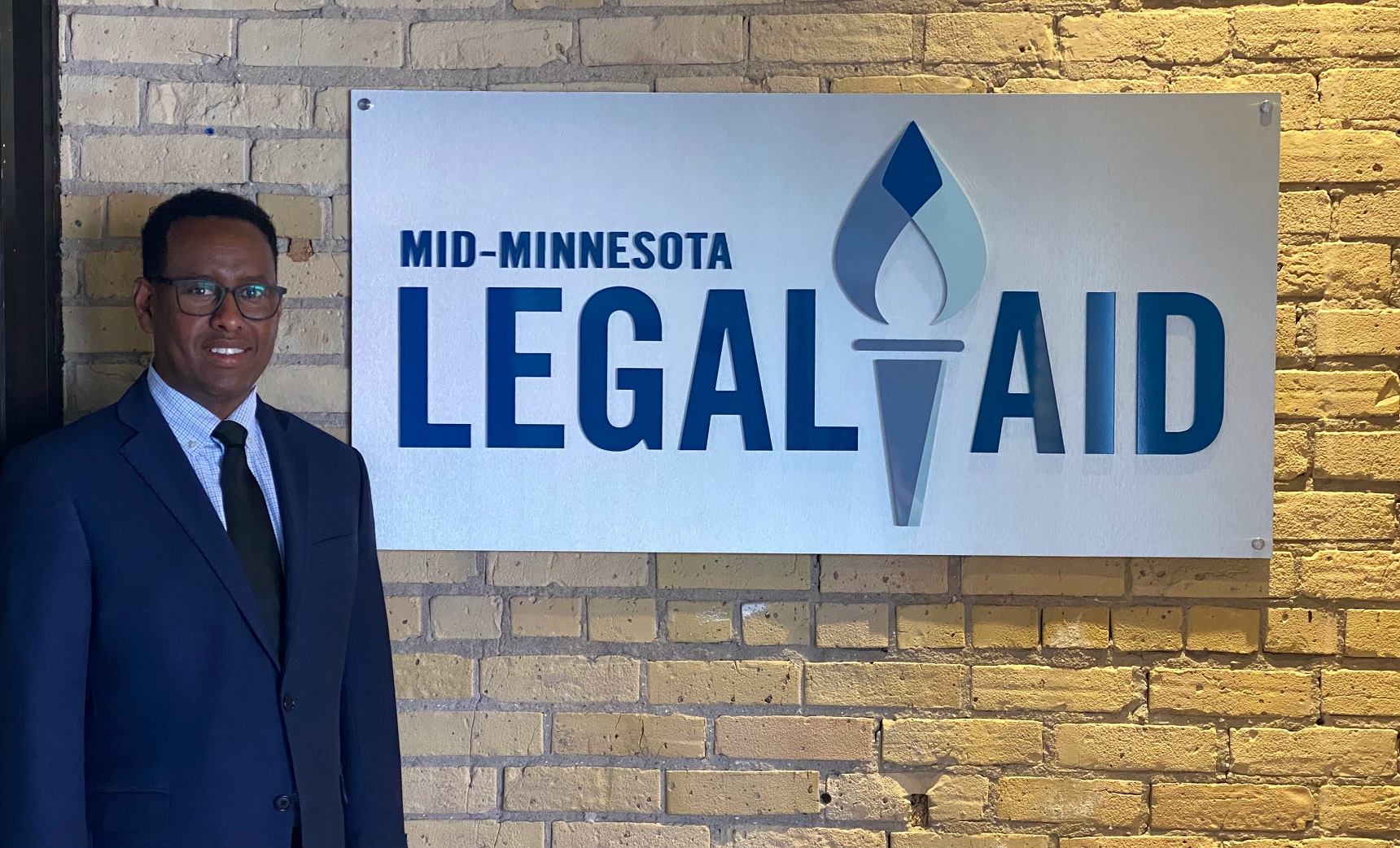Now that he has completed an externship with Mid-Minnesota Legal Aid, 2L Abdiasis Hirsi says he would now consider pursuing a career as a public interest lawyer. He’s keeping his options open, however.
Hirsi pursued the position with Mid-Minnesota Legal Aid as part of St. Thomas Law’s Fredrikson & Byron Public Interest Externship Program, which offers students the opportunity to earn credit and gain relevant professional experience. His position was funded by the Minnesota Justice Foundation Summer Fellowship Program.
As an extern, Hirsi worked with Mid-Minnesota Legal Aid attorneys to assist immigration clients, many who were pursuing a U nonimmigrant visa, which is for individuals escaping circumstances such as domestic violence and human trafficking.
“I participated in and sometimes led client interviews and wrote subsequent client-attorney communications," Hirsi said. "I also drafted, edited and reviewed forms to assist clients with status adjustments and other immigration benefits."
Hirsi says working and interacting with real clients was his favorite part of his externship. It is also where he put lessons that he learned in the classroom into action.
“Although there was a deadline approaching, my client was not ready to start the process of compiling supporting documents for her case,” Hirsi said. “So, I recall thinking about the foundation courses I had in my 1L year, specifically the emphasis on relationships, client autonomy and their dignity. I decided to give the client the space and time she needed. Clients may sometimes need to do things at their own pace.”
Near the end of his externship, Hirsi was asked to help create a written guide for pro se litigants who are in Immigration and Customs Enforcement (ICE) custody and are preparing for removal proceedings. In May 2021, ICE advised its attorneys to focus on priority cases and to use “prosecutorial discretion” in non-priority cases. The guide Hirsi worked on will help Mid-Minnesota Legal Aid reach noncitizens who, because they do not have legal representation, may not know they can submit a prosecutorial discretion request.
"This change in enforcement affects many cases," Hirsi said, adding that he focused on writing the guide in a way that could be understood by a nonlawyer. "I tried to write the guide for inmates with no or little attorney assistance, who may not have the luxury to read a document full of legalese. It is important for these individuals to know their rights."







